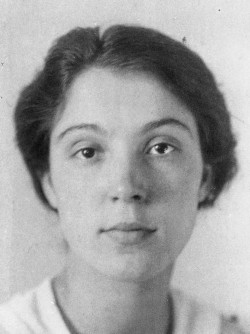This article has multiple issues. Please help improve it or discuss these issues on the talk page . (Learn how and when to remove these messages)
|
Aline Valangin | |
|---|---|
 | |
| Born | 1889 Vevey, Switzerland |
| Died | 1986 Ascona |
| Occupation | writer, pianist, psychoanalyst |
| Period | 1900 |
Aline Valangin was a Swiss writer, pianist, and psychoanalyst. She was follower of Carl Jung.
Together with Vladimir Rosenbaum (1894–1984, her husband from 1917 to 1940) in Comologno, she helped and played host to migrant writers like Ignazio Silone, Ernst Toller, and Kurt Tucholsky.
In 1931, she fell in love with Silone while reading what became his masterpiece, the novel Fontamara, and helping him publish it. [1]
She was later married to Russian-born Swiss composer Wladimir Vogel.